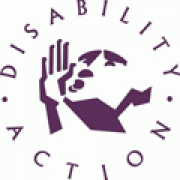Starting a business: advice for people with a disability
Finance for disabled entrepreneurs
Getting funding is a big challenge for everyone and there can be extra barriers to overcome for those with disabilities. Essential to raising finance is convincing investors that your business is sound. This means showing that your idea is worth investing in and that you have what it takes to run your own business successfully.
Before approaching a bank or investor make sure you have everything ready to show your idea in its best light - see how to tailor your business plan secure funding.
Credit rating
A bank is likely to run a check on your credit history before agreeing to give you a loan. If you are paying off debts or have had debts in the past, this may affect your options. Tell the bank about them when you apply for a business bank account and make arrangements to pay them off. A bank is more likely to consider your application if you can show that you're trying to overcome past problems.
Sources of finance and guidance
- Banks, just like any other business that provides goods or services, are not allowed to discriminate against disabled people on the ground of disability, so make sure you know your rights beforehand. For example, a bank cannot charge more for Braille or audio information than it would charge for the same content in a standard format.
- The Access to Work (NI) scheme provides grants to employers towards any extra disability related costs. Self-employed disabled people can also get financial assistance and advice on issues such as aids and adaptations, communication support, travel to work or a support worker. Nidirect provides further information on the Access to Work programme.
- The Stelios Philanthropic Foundation, in partnership with the Leonard Cheshire run The Stelios Awards for Disabled Entrepreneurs in the UK. The awards provide cash prizes that can help disabled entrepreneurs with their business ventures. Find out more about the Stelios Disabled Entrepreneur Award.
Other sources of business finance
If you don't want to go down the route of traditional bank finance, there are other options available. For example, you could:
- Use your own savings or personal borrowings to fund the business, particularly if you can't obtain finance or investment from external sources - see advantages and disadvantages of using your own money to start a business.
- Borrow money from family or friends. However, you should carefully consider the risk that they could lose their money if your business fails - see financing from friends and family.
- Aim to attract outside investors - eg by selling shares to business angels or venture capitalists. This can provide short-term finance without the need for repayment, and can also bring in expertise along with funding. However, it usually means giving up shares in your business, and investors may want some control over its management - see shares and shareholders and equity finance.
- Qualify for a grant or government support. These can provide very cheap financing, and often come with business advice or subsidised consultancy. However, there is usually a lot of competition for grant schemes, and you will need to meet various criteria - depending on the scheme - see grants and government support.
- Qualify for a government loan with Enterprise NI's Start-Up Loans scheme.
- If you are finding it difficult to obtain bank finance, you could also consider commercial lenders - such as insurance companies and building societies. You may get a better deal - eg lower interest rates - and they are generally less restrictive.
- You may also be able to raise funds through crowdfunding which raises finance by asking a large number of people each for a small amount of money to invest in your business - see crowdfunding.
For further information see business financing options - an overview.
- Start a business Helpline0800 027 0639
